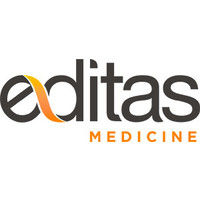Editas Medicine

🇺🇸United States
- Country
- 🇺🇸United States
- Ownership
- Public
- Established
- 2013-01-01
- Employees
- 265
- Market Cap
- $315M
- Introduction
Editas Medicine, Inc. engages in the development and commercialization of genome editing technology. Its technology includes clustered, regularly interspaced short palindromic repeats (CRISPR), and CRISPR associated protein 9 (Cas9). The company was founded by Feng Zhang, Jennifer A. Doudna, George McDonald Church, J. Keith Joung and David R. Liu in September 2013 and is headquartered in Cambridge, MA.
Participants of pioneering CRISPR gene editing trial see vision improvement
79% of participants in the BRILLIANCE trial showed improvement after receiving CRISPR-based gene editing for a rare blindness form, LCA Type 10. EDIT-101, targeting the CEP290 gene mutation, was safe and effective, with 11 out of 14 participants experiencing vision and life quality improvements.
CRISPR Clinical Trials: A 2024 Update
CRISPR-based therapies have achieved a milestone with the approval of Casgevy for sickle cell disease and beta thalassemia. Despite financial pressures and clinical trial challenges, CRISPR's potential in treating various diseases, including cancers and genetic disorders, is expanding. Innovations in delivery methods and regulatory approaches are key to future advancements.
Sickle Cell Disease Treatment Market Size Projections
The global sickle cell disease treatment market is projected to grow from USD 2 billion in 2022 to USD 12.38 billion by 2032. North America leads due to advanced healthcare and research. Blood transfusions dominate treatment types, with hospitals as the primary end-users. Innovations like CRISPR-Cas9 gene-editing offer new treatment avenues, despite challenges like treatment access and adverse effects.
Intellia to lay off staff, cut some early research
Intellia Therapeutics, a CRISPR specialist, will lay off 15% of its workforce, pausing some early-stage research to focus on its advanced drug candidate, NTLA-2001, for ATTR amyloidosis. Despite setbacks, including a discontinued partnership with Novartis, Intellia continues Phase 3 trials for NTLA-2001 and explores gene editing treatments with Regeneron.
Sickle Cell Disease Market Size, Growth, Trends, Report 2032
The Sickle Cell Disease Market, valued at 3.54 USD Billion in 2022, is projected to grow to 12.56 USD Billion by 2032, with a CAGR of 13.5%. Growth is driven by rising prevalence, advancements in gene therapy, and increased awareness. Key trends include precision medicine, digital health technologies, and patient-centered care, with significant opportunities in gene editing and targeted therapies.
Sickle Cell Disease Treatment Market Size to Garner Significant Growth by 2032
The global sickle cell disease (SCD) treatment market, valued at USD 2.5 billion in 2022, is projected to reach USD 50.45 billion by 2032, growing at a CAGR of 35.1%. North America led with a 36% market share in 2022. Growth factors include market expansion in developing regions, innovative therapies, and global health initiatives. Key treatments involve blood transfusion and bone marrow transplant, with hospitals and specialty clinics as primary end-users. Advances in genetic research and personalized medicine are driving market evolution, despite challenges like economic barriers and inadequate infrastructure in developing regions.
Sickle Cell Disease Treatment Market Worth $4.69 Billion
The global sickle cell disease (SCD) treatment market is projected to grow at a CAGR of 19.1% from 2022 to 2030, reaching $4.69 billion. SCD, a common inherited blood disorder, can be detected pre-birth and treated via bone marrow transplants, though donor compatibility is a challenge. Key players like Novartis AG and Pfizer Inc. are expanding their market presence, with recent FDA approvals and acquisitions enhancing treatment options. North America leads the market, with significant growth also expected in Asia Pacific. The development of new drugs and vaccines, alongside public-private partnerships, is driving market expansion.
Editas Medicine, Inc. (NASDAQ:EDIT) Q4 2022 Earnings Call Transcript
Editas Medicine reported Q4 2022 earnings, highlighting clinical progress with EDIT-301 for sickle cell disease and beta thalassemia, strategic shifts towards in-vivo gene editing, and financial stability extending into 2025. The company aims to advance its gene editing technologies and clinical trials, focusing on delivering transformative medicines.
First CRISPR therapy dosed
An adult with congenital blindness received the first in vivo CRISPR-based therapy, EDIT-101, targeting a CEP290 gene mutation causing Leber congenital amaurosis. This therapy uses AAV5 with guide RNAs and Cas9 enzyme to correct the mutation, differing from Luxturna, which introduces a correct gene copy for RPE65 mutations.
Genome-editing Technologies for Gene and Cell Therapy
Gene therapy has evolved from adding new genes to precisely editing the human genome for therapeutic effects, including correcting disease-causing mutations, adding therapeutic genes, and removing harmful sequences. Technologies like zinc finger nucleases, TALENs, meganucleases, and CRISPR/Cas9 enable targeted genome editing. Applications span antiviral strategies, immunotherapies, and treating hereditary disorders, with ongoing challenges in specificity, delivery, and safety.
© Copyright 2025. All Rights Reserved by MedPath
